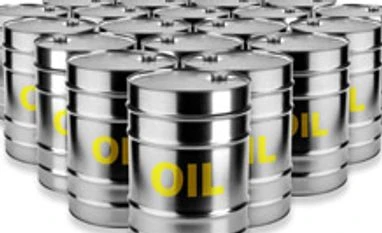Imports of Iranian crude, including condensate, reached 1.41 million barrels per day (bpd) in January and February, the IEA, which advises industrialized countries, said in a monthly report. The IEA revised up January's figure by 90,000 bpd.
"Higher Iranian imports in recent months reflect, in large part, increased sales of condensates to Asian buyers," the Paris-based agency said. "Imports of Iranian oil surged in Japan and South Korea, albeit from exceptionally low January levels."
Preliminary data from Korea Customs Service also showed on Friday that South Korea imported about 8.2 million barrels of crude from Iran in February, more than doubling the amount from a year earlier.
The rise in shipments follows a six-month interim deal Iran and world powers implemented on January 20 in which Iran agreed to curbs on its nuclear program in return for access to more than $4 billion in oil revenues that had been frozen in foreign accounts. That has improved sentiment and reduced uncertainty for buyers, oil traders and industry sources say.
Iran's six global oil buyers, including its top purchasers China, India, Japan, and South Korea, are expected to hold combined purchases of the petroleum to an average of 1 million bpd over the course of the deal.
TEST LIMITS
More From This Section
Since Washington imposed tough sanctions targeting Tehran's oil exports in 2012, State Department officials have been visiting consumer countries to help them find alternatives to Iranian crude.
Backers of tough sanctions said Friday's data showed Iran was getting more relief than Washington had said it would under the six-month deal.
But an energy policy analyst said it was too early to tell how much oil the buyers would eventually purchase, especially as February was the first full month of data after the deal was implemented.
"I do expect Iran's remaining oil importers to test the limits of the State Department's patience, but it's too soon to conclude they are going to keep purchasing the oil at these high rates" said Bob McNally, president of Rapidan Group, an energy consultancy, who served as a top energy adviser to former U.S. President George W. Bush.
There are widespread expectations that the six-month deal will be extended for another six months, which adds incentives for the importers to increase their purchases in hopes of boosting the 1 million bpd baseline in the next round, McNally added.
Washington has asked India to keep its purchases to 195,000 bpd though July and the country has agreed to hold that level, an Indian government source told Reuters this week.
Turkey increased its imports from Iran last month and shipments to Syria rose slightly, the IEA said. But Iran's two biggest customers, China and India, imported less.
China's imports will probably be revised up as the IEA said three very large crude carriers (VLCCs) were anchored off the Chinese coast and oil was sent to Batam Island, used as a transfer point for shipments to China.
Iranian exports rose last month to at least 1.30 million bpd as extra shipments headed to Syria, South Korea and Batam, Reuters reported on February 26.
)